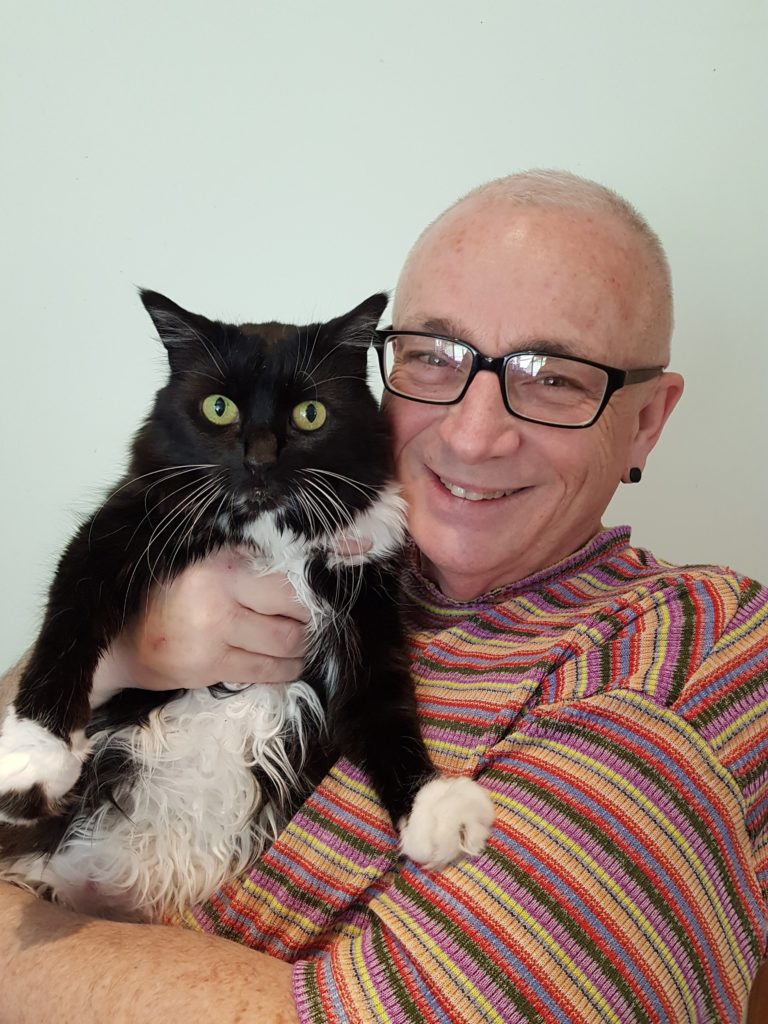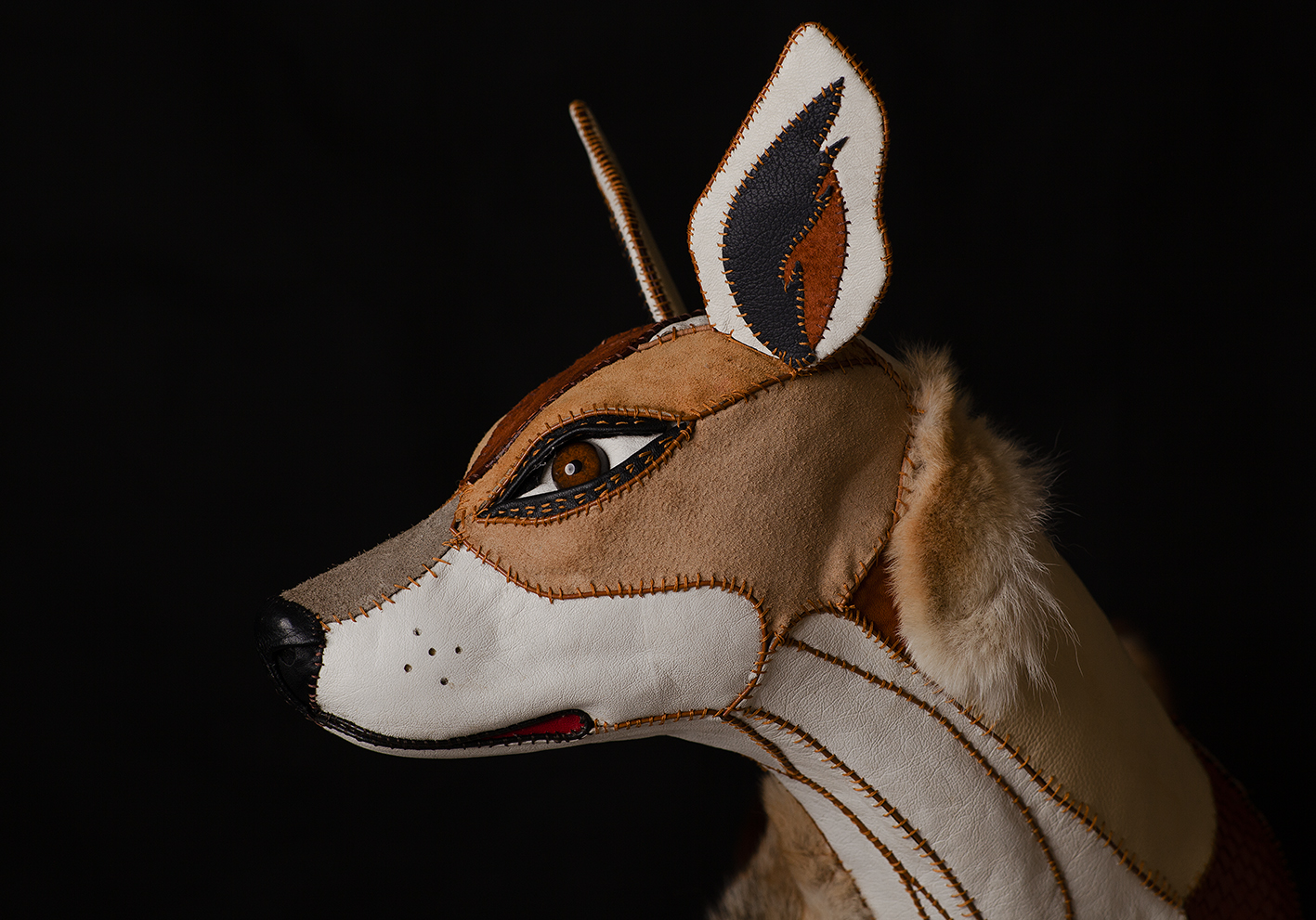
This year Minding Animals International Inc. (MAI) celebrates its 11th birthday. It’s been a busy decade for MAI and the numerous associated groups worldwide. AASA speaks with Dr Rod Bennison, the driving force behind MAI, in anticipation of the next MAI international conference scheduled for July 2021 in Sydney, Australia.
Rod has been involved in animal protection issues since the late 1970s, from the sidelines to being deeply immersed in animal protection activism. His work experience has taken him from government department, to party politics, to drug law reform activism, and his active roles in several environmental groups. He was a sessional academic for 13 years; he continues to hold fellow/conjoint positions at several universities and now manages a dedicated and tight knit team of environmental scientists in an engineering and environmental consulting firm based in the Hunter Valley on Australia’s eastern seaboard.
AASA: In 2009, you and Dr Jill Bough coordinated an international academic and community conference on animals and society. This conference, which also represented the third biennial conference of the Australasian Animal Studies Group (now Association – AASA), was the first of its kind and it was a very successful event with 520 people – scholars, artists, advocates, policy makers, and others interested in animal issues – from 23 countries attending this event. You would have been certainly very pleased but perhaps also a little bit surprised? Can you describe what it felt like to be there with all these people from all over the world coming together because they wanted to do something about nonhuman animals? How did that lead to MAI?
RB: Minding Animals 1 was so much more than very pleasing, it was indeed the greatest success. Dale Jamieson thought so when he described it as the ‘Woodstock’ of the animal protection movement. It gathered all the major players in animal studies and animal protection from around the world, except a very few who were unable to attend due to other commitments, like Tom Regan, Donna Haraway, Lori Gruen and JM Coetzee.
The key speakers included Marc Bekoff, Carol Adams, Dale Jamieson, Peter Singer, Michael Soulé, Bernie Rollin, Deborah Bird Rose, Jill Robinson, Donald Broom, Marti Kheel, Jennifer Wolch and James Serpell. So, being amongst such luminaries left many in awe.
Sure, animal studies is not about animal protection but really only about the study of how human and nonhuman animals interact, but how Minding Animals has subsequently been framed and developed is very much a consequence of what happened as a result of that first Minding Animals Conference and the decisions that were consequently made.
Most of the academics that I have mentioned formed a steering group to explore whether a follow-up conference could be held and what that would look like.
It was recognised that Minding Animals must always incorporate all the various themes of animal protection and in no way ever to be limiting in perspective and always be inclusive of other people’s opinions and viewpoints. As such, we have also sought to be a bridge between the humanities and the sciences.
Important in the Minding Animals ‘gaze’, is the intersectionality of movements. Hence, why we have actively engaged with other movements like feminists, First Peoples, the queer communities.
It is these important decisions that have made the subsequent conferences in Utrecht, New Delhi and Ciudad de México, so successful.
AASA: Can you tell us about national MAI groups and partner groups/events? How can one become a national MAI group? What are the benefits and responsibilities? What is the difference between “incorporated” groups and “recognised” groups?
RB: MAI as an organisation was legally incorporated as a charity with tax deductible status in the US state of Delaware in 2014. However, the organisation is also incorporated in Italy, Germany, Australia, and, until recently, Norway. We also have national and supranational groups in places like Denmark, Southern Africa, Costa Rica, México, India and the Netherlands. Each group operates independently, but with our jointly-held objectives (see mindinganimals.com). The most active is Minding Animals Germany that also includes German speakers from Austria and Switzerland.
We also have recognised groups, essentially like-minded groups like AASA, that seek the expansion of animal studies as an academic field.
AASA: So far you’ve organised 4 conferences on 4 different continents. The next one – the fifth one (MAC5) – will be held in Sydney in July 2021.
MAC5 is being organised by MAI and the Centre for Compassionate Conservation (University of Technology Sydney). It will also incorporate the first Compassionate Conservation Oceania conference as well as a Critical Animal Studies event.
Over the past 10 years in particular the field of animal studies has flourished, there’s practically no discipline that doesn’t include scholars working on topics related, in some way, to nonhuman animals; the amazing world of nonhuman animals’ emotional, cognitive and social capacities has received increased attention and appreciation; similarly the issue of climate change has become considerably difficult to deny or even ignore. We spent quite a bit of time over the years talking in closed circles, to the converted, so to speak, and I don’t think this is necessarily a bad thing, you need a friendly and supportive environment to help develop and consolidate ideas and approaches, but we’ve reached a point where the situation is rather urgent, there is no space left, as you emphasise on the conference’s page, for “siloed debate and insular decision making”. We need to step together – scientists/scholars, decision makers and the entire global community – and steer the vessel in the right direction. Are we ready for this?
RB: As I mentioned previously, this has always been the vision of the founders of Minding Animals as an organisation. Some animal studies scholars have failed to encapsulate or engage with various other animal studies cohorts, or other movements with a ‘similar’ vision. For example, engaging with conservation biologists who believe in lethal control of non-endemic lifeforms to enhance the survival of endangered others or ecosystems. As an avowed animal protectionist, I recognise that this may be an anathema to my very own belief structures, but we must talk with those others to achieve mutually agreeable outcomes.
I believe it is necessary to engage with others with totally opposite viewpoints – so that we may change that debate, or even change the views of some of those other academic with opposite opinions. Engaging in such debates may also influence and change the view of animal studies scholars, like myself.
The great founding ecologist/conservation biologist, Michael Soulé, for example, and largely prior to MA1, experienced such an epiphany (as attendees at MAC1 would have heard). Michael’s original standpoint focussed from a more traditional conservation biology perspective, being less on the animal as subject, to become more inclusive and caring for all life. It is also with great sadness that we recently heard of Michael’s passing in June this year.
Sure, some have failed to realise that hard decisions need to be made that may seem to be counter to the objectives of animal protection. But, as I said before, animal studies is really only about the study of how human and nonhuman animals interact, not animal protection. So, in large part, framing Minding Animals Conference 5 as an Animals and Climate Emergency Conference (ACEC) is a natural progression for MAI.
We are indeed more than ready for this. It is an absolute necessity that humans (and that includes animal studies scholars and animal protectionists), engage in the debate on the climate emergency. Losing at least a billion animals (and that’s just counting vertebrates) in the recent bushfires makes it contingent on ALL animal studies and animal protectionist scholars and activists to participate in this debate, and with others outside our silos.
AASA: The Covid-19 will have made the organisation of a large international conference even more challenging. How are you approaching it? You will have outlined a few possible scenarios? Are you able to share anything with the public at this stage?
RB: The ACEC Committee is keeping a close watch on how we must respond to the pandemic and keep all our participants safe. If we must go totally virtual we will then make that call. We will provide AASA with updates on a regular basis. The committee next meets on 24 July.
AASA: Thank you, Rod.
AASA, while not a partner or sponsor of the MAC5/ Animals and Climate Emergency Conference (ACEC), wholeheartedly support this important planned event. To show this support and to encourage discussion on critical aspects affecting our planetary communities, especially in these uncertain circumstances in which we can’t really know at this stage if or how much of the conference happenings may have to be moved online in the aftermath of Covid-19, AASA is calling for blog contributions centred around the MAC5’s advertised topics. We invite submission of blog proposals and/or completed blogs of up to 1,000 words to be sent to Teya Brooks Pribac at teyabp000@gmail.com.The blogs will be published subject to approval and editing between August 2020 and July 2021.



